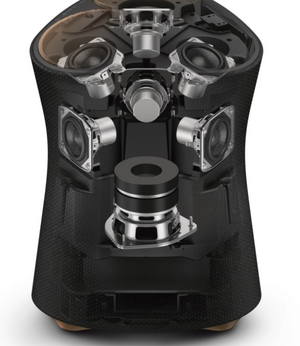Hi-Fi was and still is often mentioned, but 20-20,000 Hertz audio reproduction is not only important. When you go to the Concertgebouw, you not only see the orchestra but you also hear the acoustics. The Bösendorfer Imperial sounds fantastic there, but if this grand piano is in your room it sounds much worse. The Bösendorfer Imperial sounds fantastic there, but if this grand piano is in your room it sounds much worse. Everything sounds better in the concert hall. The same acoustics and placement can also come from two places (speakers). The same acoustics and placement can also come from two places (speakers). The best choice for the lowest (€40,000) price, The best choice for the lowest (€40,000) price, Yes, I can't afford that either, The best choice for the lowest (€40,000) price, yes I can't afford it either, but there are many more expensive ones. The Veddan origins are able to match the musicians and/or singers in the same place and sound as in the concert hall at home. There are many more brands, but the electrostats or magnetostats are always better than the cone speakers. Not only left and right but also in depth 3D effect display with sound.


